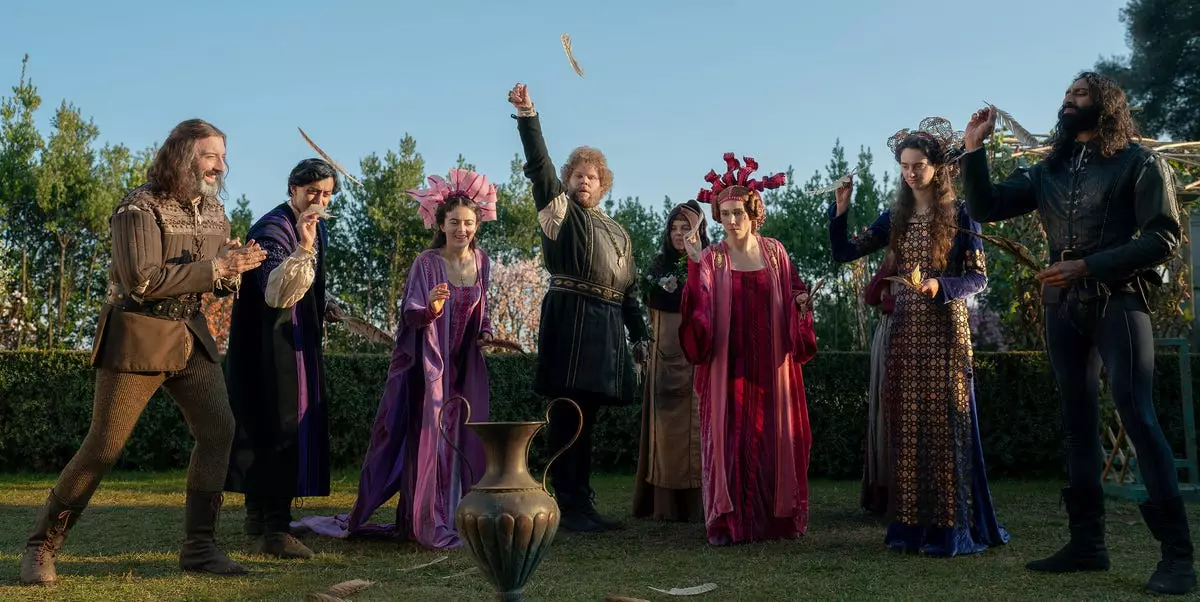“The Decameron,” a series set during the Black Plague, has left viewers wondering about the fate of their beloved characters as the story unfolds. In the finale episode titled “We’ve Had a Good Cry,” the alliances and friendships that have been formed throughout the season are put to the ultimate test as mercenaries breach the gates of the Villa Santa, where the characters have sought refuge. Let’s delve into the fates of each main character and explore how their storylines came to a close.
Tindaro, the charismatic companion and doctor of the makeshift community, unfortunately met his end after contracting the plague halfway through the season. Despite his illness, he managed to engage in romantic encounters with both Neifile and Licisca before his untimely demise. Speaking of Neifile, she also faced a tragic end after contracting the plague following her indiscretions with Dioneo and a bandit named Ruggiero. Her storyline took a dark turn, leading to her eventual death in the sixth episode.
Panfilo, Neifile’s husband, found himself torn between desire and loyalty. He was unable to bear the thought of living without Neifile, ultimately sacrificing himself in the finale to help his friends escape from the bandits. His act of martyrdom, holding Neifile’s body as they faced death together, showcased the depth of his love and devotion.
Tindaro, a nobleman with a penchant for overestimating his abilities, met his demise due to his own shortcomings. From wearing faulty armor to engaging in a fatal knife fight, Tindaro’s story ended in tragedy. Jacopo, the true heir to Villa Santa, emerged as a solemn figure amidst the chaos, haunted by the loss of his friend Tindaro. His journey into the countryside with his mother, Stratilia, served as a poignant reminder of the fragility of life.
Sirisco, the keeper of the villa, navigated the turbulent events with resolve, albeit with a bruised ego. Unfortunately, villager Calandrino met a tragic end in the finale, succumbing to an arrow wound while trying to surrender. Despite witnessing the horrors of the siege, Sirisco found solace among the survivors, embodying resilience in the face of adversity.
Pampinea, a character shrouded in greed and deception, met a fitting end as she was tricked into hiding in a barrel that was set ablaze. Her handmaid, Misia, played a pivotal role in her demise, ultimately emerging as a survivor. The uncertain fate of their short-lived romance left viewers with a sense of hope amidst the chaos.
Filomena and Licisca, the newfound half-sisters, found themselves united in their quest to navigate the challenges of the plague-ridden world. Their emotional journey, marked by healing and reconciliation, culminated in a touching resolution as they set out to reunite with their ailing father. Their bond remained a beacon of hope in a series fraught with turmoil and loss.
“The Decameron” presented a dark and tumultuous portrayal of life during a deadly pandemic, showcasing the fragility of human relationships and the resilience of the human spirit. Each character’s fate served as a poignant reminder of the unpredictability of life and the enduring power of love and sacrifice. Despite the grim backdrop of the Black Plague, moments of compassion and connection prevailed, leaving a lasting impact on viewers.

